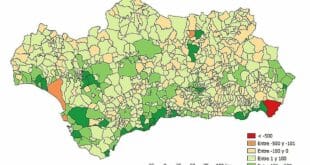Spain’s Ministry of Consumer Affairs sanctioned low-cost airlines for “abusive business practices”. Now, another step is being taken to stop these abusive practices. The office of the state public prosecutor (‘Fiscalía’) has announced that it will defend consumers and air transport users in the high court that is handling the ongoing and contentious legal proceedings involving the five airlines (Ryanair, Vueling, easyJet, Norwegian and Volotea – the five that are being fined). The legal proceedings began in 2023, and the Ministry of Justice set the total fine at 179 million euro last November.
The penalty will most likely be imposed on Ryanair once the appeals and objections have been resolved by the Audiencia Nacional civil court. This airline’s fine is 107.78 millions euros, which represents 60% of the total amount that would be imposed if the court ruled against the appeal. As confirmed by the Ministry of Justice, Vueling is expected to pay 39.26million euros. EasyJet will pay 29.1million euros. Norwegian and Volotea each have to pay 1.6million euro.
In a statement to the press, the public prosecutor explained that, for instance, these practices include requiring the payment of an additional fee in order to bring hand luggage into cabin. In the statement, it is mentioned that an additional surcharge will be added to the ticket price if there are dependents or minors and their companions. The department also views as abusive the fact that in Spanish airports cash payment is not permitted and that “a disproportionate, abusive fee” is imposed to passengers in order to print their boarding passes.
The Ministry of Consumer Affairs welcomes “the step forward” made by the Public Prosecutor’s Office
The Public Prosecutor’s Office also highlights “misleading omissions and lack of clarity” in the prices that are published on both its [the airline’s] “Consumers are unable to compare the prices of their own website with those of other websites, which makes it difficult to make a purchase decision.”
The Ministry of Consumer Affairs in Madrid has welcomed the move taken by the Public Prosecutor’s Office and reaffirms its “determination” to “defend the rights of consumers until the end, against any institution or authority.” It stated in a press statement that “our aim is for no citizen to ever pay in Spain or Europe again for what is legally a right.”
The airlines confirm that the policy to charge for cabin baggage remains “totally legal”. In a response to SUR in writing, Spain’s largest airline association (ALA), who represents the majority of airlines operating in Spain, along with air traffic control, notes that Regulation 1008/2008 recognizes airlines’ freedom to set air fares. ALA also stated that Spain’s current stance on this issue would make it the only EU member state where this practice is banned, causing a “competitive distorsion between operators and markets.” ALA also stated that “common rules should be set up for all of Europe to avoid distortions in the single European Market.”
No further obligation to pay
Even though the fine has been imposed, the requirement to pay for hand baggage does not cease automatically. The airlines are appealing to the Audiencia Nacional. They may not implement the measure until the final decision is reached. The Ministry of Consumer Affairs made it clear that it is up to the high courts to resolve this issue, but “at the time it becomes effective, airlines will have pay the fine, and these practices are automatically banned.”
Prohibited practices
The sanction also prohibits the continued practice of:
A supplement is required for hand luggage to be carried into the cabin.
A surcharge is applied to the price of the ticket to reserve adjacent seating for minors or dependent persons and their accompanying person.
-Payments in cash are not allowed at Spanish airports.
Impose a fee that is disproportionate or abusive to passengers who print boarding cards at check-in.
 Costa News Spain Breaking News | English News in Spain.
Costa News Spain Breaking News | English News in Spain.







